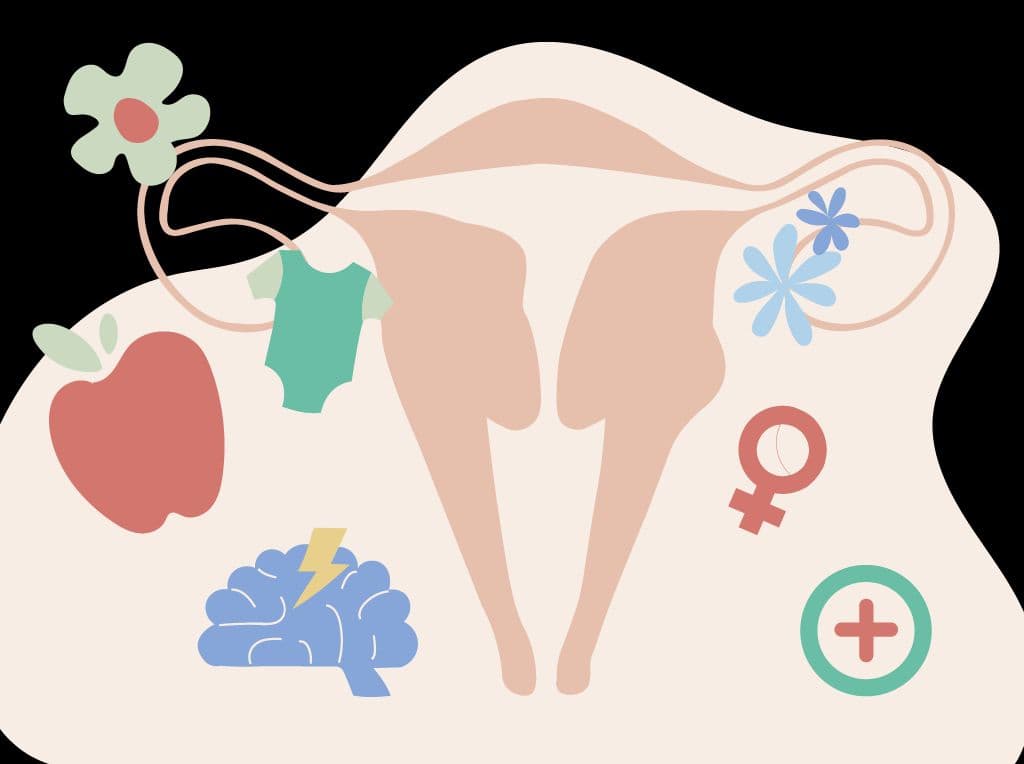This article has been compiled by Vaibhavi Kodnani, a content writer at Proactive For Her.
The reproductive age of a woman is from 17-45 years on average. However biologically speaking, it is better to plan the pregnancy and give birth during the twenties and early thirties. The main reason for this is that the body is mature enough to carry a pregnancy in that period. Also, since fertility starts to decline after 32 years of age, it becomes harder and takes longer for becoming pregnant.
Pregnancy is a crucial period in the life of a couple. They have to consider many aspects before having a baby - lifestyle and dietary changes, medical check-ups, financial planning and more. Since a woman has to carry the baby in her womb for 9 months, she needs to prepare her body well in advance for the pregnancy.
If you prepare your body for pregnancy, you can:
- Have a healthy pregnancy
- Avoid or minimize pregnancy complications
- Give birth to a healthier baby
- Recover more quickly and easily after giving birth
- Have a more pleasant postpartum (post birthing) experience
- Minimize the risk of future health problems for your child, even into adulthood
What is the right time to start preparing your body for pregnancy?
Before you get pregnant, prepare and take care of your body at least 3 months in advance. If you have any pre-existing medical conditions, you need to start earlier and bring them under control before getting pregnant.
How can a woman prepare for a pregnancy?
Below are crucial tips for a woman to prepare her body for the upcoming 9 months of pregnancy.
1. Eat a balanced diet: If you were one of those people that has deprioritized nutrition, ordered too much takeout and opted for week long leftovers, 3 months before planning a pregnancy is a great time to start incorporating more healthy meals and eating patterns in your life. However, if you’ve decided to have a baby, you need to start eating healthy and nutritious food. It is to ensure that you do not have any deficiencies before pregnancy. All these nutrients are crucial for you and your baby’s health.
What to eat: Eat a balanced diet that includes enough protein, fibre, healthy fats and good carbs. Make sure to eat all fruits, vegetables, whole grains, and dairy products to gain all the nutrients.
2. Reduce empty calories: Reduce refined sugars and refined carbs as they do not provide any nutrients to the body. Instead, they increase the metabolic rate, leading the body to spend excessive time burning those calories. When you are preparing your body for pregnancy, you need to gain and preserve your energies. Hence, you must consume a nutritious diet and dump the junk.
3. Start on vitamin supplements: Start taking folic acid vitamin supplements 3 months before getting pregnant. You need to take at least 400 micrograms of folic acid every day. Once you get pregnant, continue these supplements in the first trimester as well. They aid in the appropriate development of your baby's brain and spinal cord (nervous system).
4. Exercise regularly: A woman’s body goes through many physical changes during pregnancy. Exercise before pregnancy is of utmost importance to prepare the body for the forthcoming changes. If you do not exercise, now is the time you should start getting some physical activity in your day. Continue the exercises in consultation with your doctor after getting pregnant. This will also reduce your risk for complications such as diabetes or high blood pressure in pregnancy.
What to do: Any aerobic exercise such as jogging, walking, cycling, running, swimming, etc.
Reps: 30 minutes of exercise per day; at least 5 days a week.
What to avoid: High-intensity workouts, weight training (once you have conceived)
5. Stop smoking, alcohol, and drugs: Smoking, drinking alcohol and taking drugs is not only harmful to you but also your unborn baby. Consuming alcohol during pregnancy can cause long-term problems such as facial and heart defects, intellectual disability, behavioural issues, and learning disabilities for the baby. Similarly, smoking will put your child at a higher risk of contracting health problems later on in life. The baby may also be born with lower birth weight. Both smoking and heavy alcohol use have also been associated with early miscarriages.
6. Limit caffeine intake: Caffeine is also a teratogen, something that causes defects in the baby. Excessive caffeine also reduces your chances of getting pregnant. Hence, it is better to limit or stop its intake if you are trying for a pregnancy. Having 2 or less that 2 cups of coffee a day is an ideal amount. Make sure to also count other sources of caffeine such as energy drinks and beverages such as coke and cut down on those.
7. Relax your body: Reduce your stress if you are trying for pregnancy as that increases your chances of conception. You can try relaxation techniques such as yoga, meditation, walking, reading, music, etc. Pick an activity that makes you relaxed and happy. If you are dealing with a mental health concern prior to pregnancy, seek medical consultation as this may impact your pregnancy and baby.
8. Manage other medical conditions and find the right medication: If you have any health problems such as diabetes, hypertension, asthma or thyroid, visit your doctor for advice before planning the pregnancy. It is necessary to take care of these conditions and bring them under control before getting pregnant. Just like medical conditions, not all medicines are safe for pregnancy either. If you are on long term medication, verify with your doctor if such medication is safe to be continued when you get pregnant. The right medication taken at the wrong time can lead to multiple defects in the baby.
9. Get yourself vaccinated: Now is the time to recheck your vaccination status. Before pregnancy, you should get yourself vaccinated for rubella to keep yourself and your baby healthy. But remember to avoid pregnancy for at least 3 months after rubella vaccination. Not all vaccines are safe in pregnancy. Make sure you check with your doctor before getting pregnant.
10. Check your BMI and reach a healthy pre-pregnancy weight: The Body Mass Index (BMI) can affect your menstrual cycle. Hence, it also affects your fertility. The chances of pregnancy reduce if the woman is underweight (BMI < 19) or overweight (BMI > 25). Women with high BMI tend to have more problems during pregnancy and labour. It puts them at a higher risk of many complications like:
- Getting hypertension and diabetes
- Preterm birth
- Operative delivery (C-section)
- Venous thrombosis
Reaching a healthy weight prior to pregnancy also allows room for gaining more weight over the pregnancy and postpartum period.
Pregnancy tips for men
It may seem like only women have to take all the effort and adapt to many changes. However, men have to keep some things in mind too:
- Stop smoking, alcohol, and drugs: Alcohol, drugs and smoking can reduce the semen count and cause abnormalities in the sperms. Hence, it is better to stop them if you and your partner are wanting to conceive.
- Reduce heat exposure: Excessive heat exposure near the private parts can affect fertility in men. Some tips to keep in mind are:
- Don’t keep the laptop directly on the lap; instead, use a table
- Avoid wearing tight undergarments
- Avoid keeping mobile phones in the pocket
- Avoid sitting for prolonged periods
- Take frequent breaks between work hours
Pregnancy tips for the couple
- Stop birth control : The most obvious step to getting pregnant is to stop using all birth control measures like condoms, Oral Contraceptive pills, etc.
- Get tested for STDs : Before stopping birth control, it is always better for the couple to get themselves tested for STDs.
- Have sex : You may feel this is very obvious but what this point means is that you need to up the frequency of having sex. Majority of the couples have sex right before ovulation, thinking that it is enough, but it is not. But, doctors recommended having sexual intercourse every 2-3 days throughout the cycle to get pregnant.
- Be financially prepared : Make sure you and your partner have saved up enough before you plan the pregnancy. You must also set some money aside for any medical complications during pregnancy or post-delivery. Being financially secure and stable is crucial for raising a child.
- Schedule a visit with the gynaecologist : The couple needs to visit the gynaecologist for preconception counselling before they plan their pregnancy. It is crucial to make sure that they are physically fit and healthy to have a baby. Here is a brief overview of what you can expect when you go to your gynaecologist:
- The doctor will record your height, weight and other such data.
- They will also check for any pre-existing medical conditions.
- The couple can undergo STD screening.
- The doctor will examine the condition of the reproductive parts of the woman. The doctor will also take a PAP smear.
- After all the screenings and examinations are over, the doctor will give their assessment. They may also prescribe medications if need be.
- The doctor will also discuss any risks for genetic diseases in this session should the couple have a history of such conditions within their blood relatives.
Bottom Line
Having a baby is one of the most beautiful experiences for a couple. Even though spontaneity has its thrills, still when it comes to pregnancy, planning it well in advance will result in a healthy pregnancy.
Disclaimer - This information is provided for educational purposes and should not be construed as medical advice. Please consult with your healthcare practitioners before undertaking any changes in your diet or adding supplements.
ProactiveForHer is a digital clinic for women, offering accessible, personalized, and confidential health-care solutions. We offer products and services for out-patient health concerns of Indian women, across their lifetime - from puberty to pregnancy to menopause. To know more on the sexual and reproductive health of women, visit https://www.proactiveforher.com/

